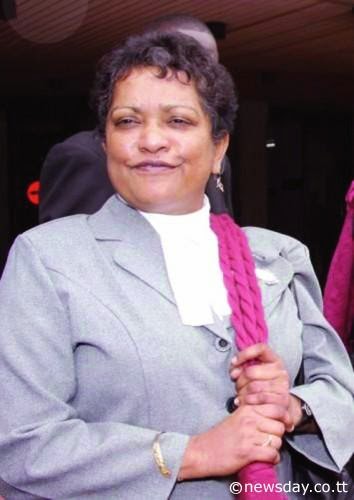Thirty Thousand failures: SEA
We present and encourage progressive Caribbean views of Caribbean and world affairs.
THIRTY THOUSAND failures
Published:
Tuesday, July 9, 2013
 |
| Trinidad and Tobago National Flag |
Secondary Entrance Assessment Examination
SEA. Such a trivial, stupid exam and
so much fuss about nothing. The annual SEA results have come and gone once
again, like so much of the wind and gas that passes for sound an fury in
T&T. This is an exam that nobody approves of. It proves nothing except
that children with better memories or test-smart children, do better in a
certain type of test than less technically proficient children. It makes
hard-back men and women tremble in their beds at night when they think of their
exam experiences or ponder the results for their child. It forces children to
spend their time studying exam questions when they should be reading or playing
outside before the concrete monsters the Government is intent on building all
over the island take over; that creates 11-year-old “successes” and
“failures.”
It, also, makes many children
believe they are stupid, or worse, smart. The inequitable system of good
schools versus poor schools continues and that causes serious illness in so
many children, ranging from depression to diarrhoea, anxiety to abdominal pain
and headache to hallucinations. No one has yet committed suicide but it is only
a matter of time. Thursday, the day results came out, has become a marked day
in the life of thousands. Everyone—from the man in the street offering
congratulations, to the Minister of Education who apparently feels he has to
visit the top schools “to share the news with the successful students” and thus
consecrates the idea that the SEA is the beginning and end of primary school,
to the media frenzy over the Top 100 or Top 3, including the usual preposterous
headlines about Girl Power. It’s a horrible day for the ones who did well and
for the forgotten ones who did not. Does anyone realise what we are doing
to those children?
On the one hand we are creating
undue pressure for the successful to continue to do better at a time when their
minds are incapable of handling such stress. How can they ever live up to
expectations? On the other, creating a I-am-a-failure mentality at age 11?
Preposterous! Happy are those children who simply managed a basic pass. They
can relax and enjoy their holidays. What is all of this nonsense about
girl power and girls doing better in the SEA? Girls have always done better
than boys in exams up to about age 18. Just compare the 11-year-olds you know.
An 11-year-old girl is more advanced, physically, mentally and emotionally than
an 11-year-old boy. Quite apart from the excessive emphasis on memory-type
exams and exams and more exams and cramming, cramming, cramming, that’s another
reason for doing away with the SEA: we have created a monster with the emphasis
on an exam.
Instead of children going to school
to learn how to enjoy learning, to think for themselves and to learn how to
work out problems, we are training them to accept whatever a person in
authority says as gospel and to memorise so-called facts and, like parrots,
regurgitate when called upon and are called successes and take pictures of
them!
There are no pictures of the unsuccessful ones. Unhappiness must be shoved into
the closet. At least the T&T Guardian this year ran an article with the
headline SEA dreams come true; others crushed and briefly referred to “tears of
disappointment” at the start of the article. No pictures though. Is there
any evidence that children who do well in the SEA do better in life, however
you define better (happier, richer, more productive)? There is none. There is
evidence, however, that children who fail end up, as a group, less better off,
more criminally inclined and more likely to live on the street.
Thirty per cent of SEA students do
badly in the exam. One in three. About 1,000 fail miserably. Why do they fail?
No one knows. What happens to them? No one knows. Perhaps this is the group we
should be concentrating on? This is the group the Minister of Education should
be talking to? This is the group the media should be highlighting? Why are
they failing and what can be done to assist them? What happened to the
thousand from last year? And the year before? And for the last 30 years? Is
that 30,000 failures out there on the streets? I would venture to suggest that
a significant proportion of street children, drug addicts and criminals come
from these failures.
I also want to suggest that most of the children who fail the SEA so miserably
have some form of disability and that there is a direct relationship between
disability in children, SEA failures and criminality in T&T. At least this
year the minister has proposed that the SEA, in his own words, “the dreaded
SEA,” be eliminated and be replaced by a continuous assessment system, a much
fairer and more accurate system of evaluating a student. He must be
congratulated for bringing this to the public table and prepare for war from
those who dislike change.
(From The Trinidad Guardian Tuesday, July 9th. 2013)
Mahogany Coconut Note:
The SEA (Secondary Assessment Examination) in Trinidad and Tobago, is the equivalent to the CEE( The Common Entrance Examination in Barbados) These exams are used to transfer students from primary to secondary schools. Many critics of these exams, including the Mahogany Coconut Group, believe that they should be abolished and replaced with continuous assessment or some other method , to more clearly define students abilities. Many critics also believe that the exams are too narrow because of the focus on academics thereby excluding students with other (technical) skills.
Mahogany Coconut Note:
The SEA (Secondary Assessment Examination) in Trinidad and Tobago, is the equivalent to the CEE( The Common Entrance Examination in Barbados) These exams are used to transfer students from primary to secondary schools. Many critics of these exams, including the Mahogany Coconut Group, believe that they should be abolished and replaced with continuous assessment or some other method , to more clearly define students abilities. Many critics also believe that the exams are too narrow because of the focus on academics thereby excluding students with other (technical) skills.



Comments